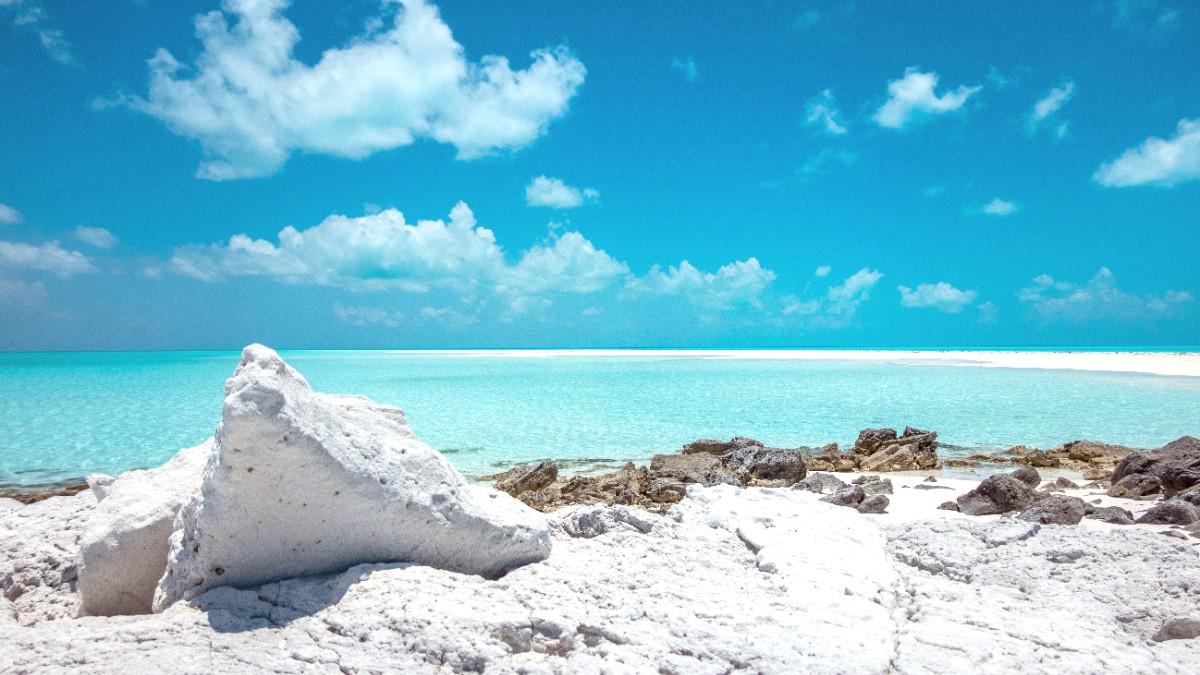
Out Islands, The Bahamas
The islands experience a tropical savanna climate, which means warm temperatures prevail throughout the year. However, distinct seasons bring variations in humidity and rainfall. Winter (December - February) brings comfortable 70-75°F (21-24°C) with lower humidity. Spring (March - May) sees temperatures rise to 75-80°F (24-27°C) with moderate humidity. Summer (June - August) presents hot and humid conditions, averaging 80-90°F (27-32°C). Fall (September - November) maintains warm temperatures, typically 78-85°F (26-29°C), with humidity gradually decreasing.
Hurricane season officially runs from June 1 to November 30. The highest risk period for tropical storms and hurricanes typically runs from August through October. Travelers considering a trip during this period should purchase travel insurance that includes comprehensive hurricane coverage. It is also wise to monitor weather advisories closely from reliable sources like the National Hurricane Center.
Plan your Exumas trip to align with your preferences for weather, crowds, and budget. High season (Mid-December to Mid-May) brings superb weather but higher prices. Shoulder season (Late May - June, November - Mid-December) offers a balance of good weather and fewer crowds. Low season (July - October) features the lowest prices but intense heat and the height of hurricane season.
Boating, snorkeling, and diving find their best conditions during the dry season (December-May). Beach relaxation remains comfortable year-round, most pleasant during the dry season. Fishing is an excellent activity year-round, with specific species peaking in different seasons. Budget travelers find the low season to be the best value.
Mid-Dec to Mid-May
Superb weather, calm seas, full services.
Higher prices, crowded attractions, advance booking for travel and lodging absolutely necessary.
Late May-Jun, Nov-Mid-Dec
Good weather, fewer crowds, better deals.
Early summer heat/humidity, lingering tropical weather risk in late fall.
July-October
Lowest prices, fewest crowds, unique local experiences.
High heat/humidity, peak hurricane risk (Aug-Oct), some businesses may close.
United States, Canadian, United Kingdom, and Schengen Area citizens do not require a visa for stays up to 3-8 months. A valid passport is the only document required for entry. Your passport must validate for at least 6 months beyond your intended departure date. Immigration officials require proof of your departing The Bahamas, like an airline ticket or cruise itinerary. Evidence that you can support yourself financially during your stay sometimes appears requested. Confirmation of your accommodation in the Exumas is another entry item. Children under 18 not accompanied by both parents may require a notarized letter of consent from the absent parent(s).
No specific entry fees apply for tourists. Immigration procedures involve presenting your passport and a completed immigration card upon arrival at Exuma International Airport (GGT). Customs declaration forms also require completion. For boating/yachting, pleasure vessels entering The Bahamas must clear customs and immigration at the nearest designated port of entry, like Georgetown. A cruising permit and a fishing permit generally find application for foreign vessels. A valid fishing permit is a requirement for all non-Bahamian residents engaging in sport fishing. Drones require a permit from the Civil Aviation Authority (CAA) of The Bahamas for commercial use; recreational use is generally permitted with restrictions.
No visa for stays up to 8 months.
No visa for stays up to 3 months.
No visa for stays up to 3 months.
No visa for stays up to 3 months.
Check official Bahamas Ministry of Foreign Affairs website or consulate.
The Exumas, while possessing unparalleled beauty, can be an expensive destination.
The official currency, the Bahamian Dollar (BSD), pegs 1:1 to the United States Dollar (USD). USD gains wide acceptance throughout the Exumas at par with BSD. ATMs appear available in Georgetown, Great Exuma, but less commonly in remote Out Islands. Credit cards (Visa, MasterCard, American Express) gain wide acceptance at hotels, larger restaurants, and tour operators.
Tipping is a customary practice throughout the Exumas. Tipping percentages mirror North American standards. Check your bill carefully for automatic gratuities, specifically at resorts or for larger groups.
The Exuma Health Centre in Georgetown serves as the main hospital, providing basic medical services. For serious emergencies, evacuation to Nassau or the United States frequently occurs. Dial 919 or 911 for emergency services.
These ranges serve as a guide. Actual costs vary based on individual choices and seasonal pricing.
| Category | Budget Traveler (USD) | Mid-range Traveler (USD) |
|---|---|---|
| Accommodation | $100 - $200 | $250 - $500 |
| Meals | $40 - $70 | $80 - $150 |
| Transportation | $20 - $50 | $50 - $100 |
Beyond planning, special factors contribute to a smooth Exumas trip.
Generally available at resorts and larger accommodations.
BTC (Bahamas Telecommunications Company) and Aliv offer reliable mobile data. Purchase at stores in Georgetown or at the airport. An unlocked phone and passport for registration are needed.
Check with your mobile carrier for international roaming plans; they can be expensive.
Mindful practices support the pristine environment and local communities.
Employ Reef-safe sunscreen to safeguard the delicate coral reefs. Conserve water, a precious resource on the islands. Minimize plastic waste by using reusable bottles and bags. Respect marine life by observing from a distance and avoiding contact. Support local businesses and artisans to contribute directly to the island economy.
These actions promote sustainable tourism and preserve the Exumas' natural beauty.
Interact with friendly pigs on an unique beach.
An underwater cave system perfect for snorkeling and diving, featured in James Bond films.
Encounter endangered iguanas in their natural habitat.
The Exumas maintain a generally safe environment for tourists. Violent crime targeting visitors occurs rarely. Most incidents involve petty theft.
The Exumas provides a wide array of activities, mainly centered around its stunning waters.
Boating, snorkeling, diving, kayaking, paddleboarding.
Bonefishing in the flats, deep-sea fishing charters.
Beach relaxation, exploring sandbars, discovering secluded coves.